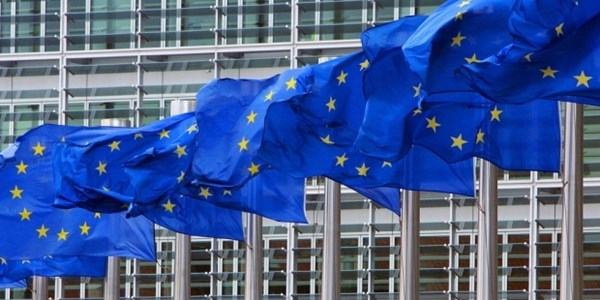EU extends sanctions against Crimea
The EU Permanent Representatives Committee (COREPER) extended for a year without any discussions restrictive measures against Crimea as part of the EU's strategy to reject Crimea's annexation by Russia, adopted in 2014, TASS reports, citing a diplomatic source in Brussels.
"COREPER has decided to extend for 12 months restrictive measures against Crimea and Sevastopol," TASS’ source said. The decision will be formally approved by the EU Council next week and will then come into force.
Restrictive measures against Crimea were adopted by the European Union in June 2014 as part of the EU's Strategy for Non-Recognition of the Annexation of Crimea. These sanctions prohibit European business from maintaining any contacts with Crimean companies, prohibit European airlines from flying to Crimea, and ships, to enter Crimean ports, imposes a full trade blockade of the peninsula, and prohibits EU countries to give visas to residents of Crimea who have received Russian passports.
This sanctions package is extended annually without discussions, as in 2014 the EU determined that these restrictions will remain in force as long as Crimea is annexed by the Russian Federation.
This package of restrictive measures is one of three introduced by the European Union against Russia in 2014. In addition to it, there is also a blacklist of individuals and entities from Russia and Ukraine, whom the EU considers to be involved in the destabilization of the situation in Ukraine. It is extended annually for 6 months in March and September. The third package is sectoral economic sanctions against a number of Russian state-owned defense and oil companies, as well as five leading Russian banks, which is also extended twice a year in July and January.
In February 2014, armed people in uniforms without insignias appeared in Crimea and captured the Supreme Council of Crimea, the Simferopol Airport, the Kerch ferry crossing and other strategic objects, and prevented the Ukrainian army from taking action. Initially, the Russian government refused to acknowledge that these armed people were Russian soldiers, but President Vladimir Putin later admitted it.
On 16 March 2014, a referendum on the status of Crimea was held in Crimea and Sevastopol, in which the inhabitants supposedly voted for the peninsula to become part of Russia. The outcome of the so-called referendum is not recognized by Ukraine, the EU or the US. On 18 March, Putin announced the “annexation” of Crimea to Russia.
International organizations have declared the annexation illegal and condemned Russia’s actions. Western countries have imposed economic sanctions on Russia in connection with the annexation. Russia claims to have “restored historical justice”. Ukraine’s parliament, the Verkhovna Rada, declared 20 February 2014 the start of Russia’s temporary occupation of Crimea and Sevastopol.
